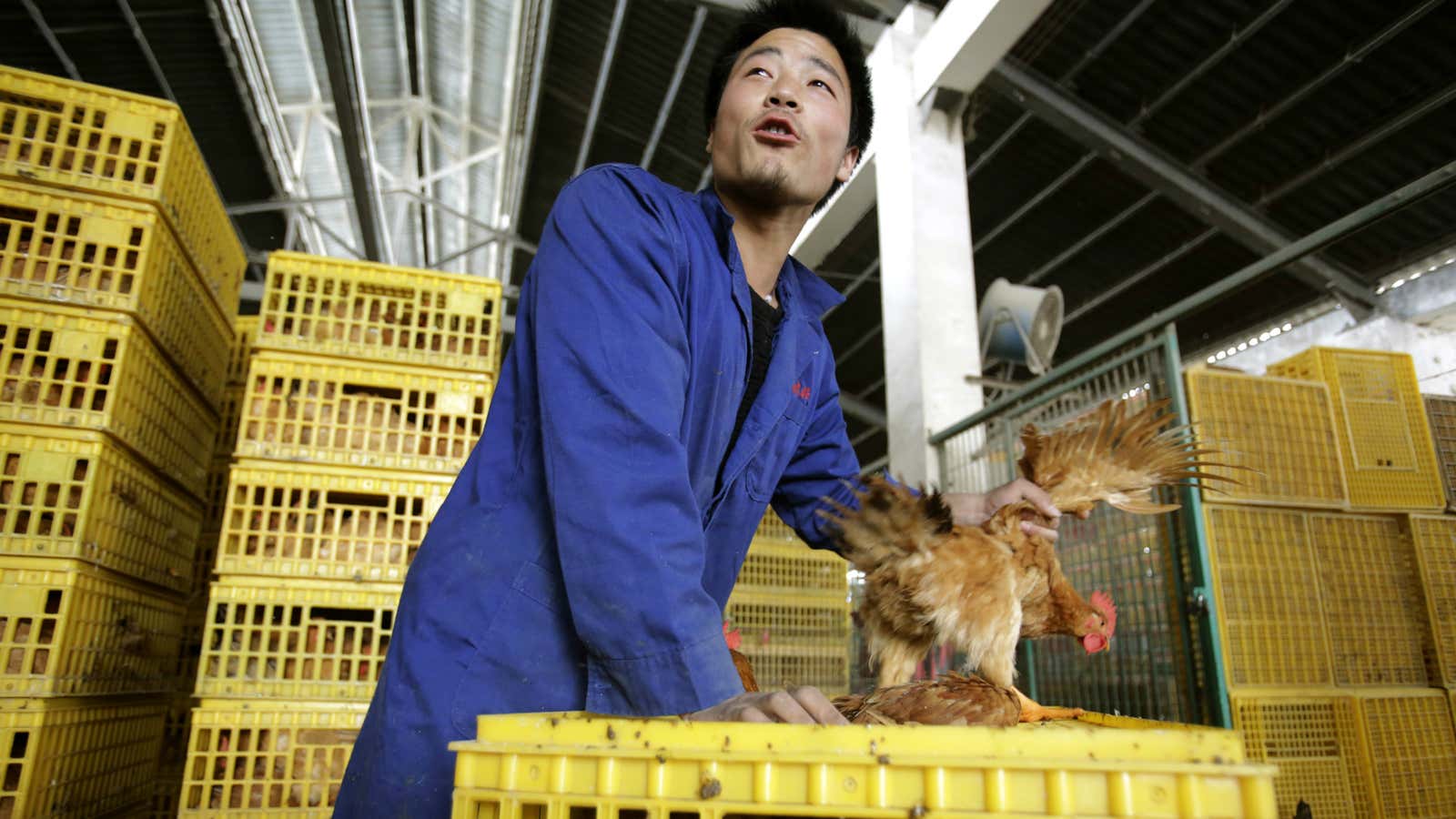China’s workplace safety has improved significantly in the last few years, but it’s still got a long way to go, judging by a poultry slaughterhouse fire on Monday that killed at least 93 people near Dehui in northeastern Jilin province.
The Jilin Baoyuanfeng Poultry factory caught fire at about 6am, and 12 hours later was still burning. It is unclear how many of the 300 workers present at the time managed to escape. Xinhua reports from the scene are blaming poor building design and a locked gate for contributing to a high death count; the Associated Press reported that bodies were found trapped in sheds.
Workplace tragedies like Bangladesh’s factory collapse get a lot of attention, but China can be just as dangerous. The Jilin fire is the latest in a long list of recent fatal incidents, including an explosion last month that killed 12, and a factory fire in January that went unnoticed for hours because its smoke was masked by dense smog.
Although official safety standards are strict, compliance is not, and corruption is high. Bloomberg Businessweek found that Chinese companies with politically connected CEOs had five times as many workplace fatalities as those who did not. A previous attempt at reform involved throwing money at the problem, and officials claim it has worked, with a 4.7% drop in workplace fatalities in 2012. The raw numbers aren’t as pretty. Officials did not disclose how many people died in 2012, but reports from the year before put the number of annual workplace deaths at around 80,000.
So how can China improve its safety record? Perhaps a pork producer will lead the way. Among widespread concern from Chinese citizens about the safety of their food, Shuanghui announced plans last month to buy the US pork producer Smithfield, in part to obtain its “best practices and operational expertise.” Perhaps chickens will be next.
